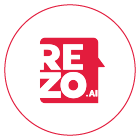
Top 10 Benefits of Implementing Call Center Analytics in Your Business

Top 10 Benefits of Implementing Call Center Analytics in Your Business


In a bustling call center, Harshit, the Operations Manager, noticed customer complaints were on the rise, and call resolution times were dragging. She turned to Jasleen, the analytics specialist for help. Armed with the Data from every call, Jasleen began to uncover patterns, identifying where agents struggled, which issues were the most frequent, and how long it took to resolve them. With these insights, Harshit could make informed decisions, improve training, and ultimately boost customer satisfaction, demonstrating the power of call center analytics.
What is Real-Time Call Center Analytics?
Calls have always been recorded by call centers so that agent performance can be examined and customized training plans may be established. However, this laborious and painstaking method existed until recently. Modern contact centers can now expedite and streamline the entire process because of advancements in AI and automation.
Analytics from call centers are essential for promoting global business expansion. Businesses may prioritize their consumers and provide highly tailored experiences that genuinely impact their business by gathering and evaluating call data.
Quick Read: The Impact of AI Automation on Customer Service Strategy
Types of Call Center Analytics?
Call center analytics can be categorized into several key types, each offering unique insights into different aspects of call center operations:
- Descriptive Analytics: This type involves analyzing historical data to understand past performance. It includes metrics like call volume, average handling time (AHT), first call resolution (FCR), and customer satisfaction (CSAT) scores.
- Predictive Analytics: Predictive analytics uses historical data to forecast future trends and outcomes. It helps in anticipating call volumes, identifying potential issues, and predicting customer behavior, enabling proactive decision-making.
- Prescriptive Analytics: This advanced type suggests specific actions based on data insights. By analyzing various scenarios, it guides management on the best course of action to optimize performance, such as staffing adjustments or targeted training programs.
- Real-Time Analytics: Real-time analytics provide up-to-the-minute data on ongoing operations. It allows managers to monitor calls as they happen, adjust strategies on the fly, and quickly address issues as they arise.
- Speech Analytics: This focuses on analyzing spoken language during calls. It can identify customer sentiment, detect keywords, and ensure compliance with scripts, helping improve both agent performance and customer experience.
- Sentiment Analysis: A subset of speech analytics, sentiment analysis gauges customer emotions during interactions. By understanding the tone and mood of conversations, it helps in assessing customer satisfaction and addressing concerns promptly.
- Text Analytics: Text analytics involves analyzing text-based communications, such as chat transcripts or emails. It helps in understanding customer issues, identifying common problems, and improving written communication strategies.
Each type of call center analytics plays a crucial role in optimizing operations, improving customer experience, and driving business success.
Quick Read: Learn About the Importance of CRM in Growing Your Business
How Do Call Center Analytics Enhance Customer Experience?
Real-time analytics offer significant advantages in improving the customer experience by optimizing contact center operations. Here’s how they can elevate your service levels:
- Enhanced Operational Efficiency:
Example: Suppose your contact center experiences a sudden spike in call volume due to a product launch. Real-time analytics can instantly detect the increase and trigger an automatic alert, prompting managers to allocate additional agents to handle the surge. This ensures calls are answered promptly, reducing wait times and preventing customer frustration. - Improved Quality Assurance:
Example: Real-time monitoring allows for immediate quality assurance checks. For instance, if an agent consistently deviates from the script or fails to resolve issues effectively, supervisors can intervene right away. This proactive approach leads to on-the-spot coaching, ensuring high-quality service and compliance with company standards throughout the day. - Higher Service Levels:
Example: If analytics reveal that a particular issue is causing repeated customer complaints, real-time data can help quickly identify the root cause. For example, if a software update leads to frequent customer queries, the system can flag this trend, allowing the company to address the problem rapidly and inform agents of the best resolution steps. This leads to faster issue resolution and higher customer satisfaction. - Agility in Meeting Customer Needs:
Example: Imagine a scenario where a popular social media influencer mentions your brand, leading to an unexpected influx of customer inquiries. Real-time call center analytics can detect this surge and automatically route additional resources to the call center, ensuring that customers receive timely support without delays. - Personalized Customer Interaction:
Example: By analyzing customer interactions as they happen, real-time analytics can provide agents with insights into a caller’s history and preferences. For instance, if a customer has a history of purchasing high-end products, the system can prompt the agent to offer tailored suggestions or promotions, enhancing the personalization of the service and increasing the likelihood of a sale.
Learn About the Quality parameters in BPO
Benefits of Implementing Call Center Analytics in Your Business
Implementing call center analytics in your business is one of the most essential parts of the growth strategies. Mentioned below are some of the benefits of implementing call center analytics in the business.
- Boost Operational Efficiency: Call center analytics minimize call volumes, expedite operations, and shorten call handling times by evaluating call data. This lowers operating costs by enabling customers' issues to be resolved more quickly.
- Enhance Customer Satisfaction: Analytics make it possible to provide a customized consumer experience. Agents may customize their encounters and increase customer satisfaction and loyalty by knowing the preferences and behaviors of their clients.
- Empower Agents with Performance Insights: Agents can learn important information about their areas of strength and growth by examining the data from their own client interactions. Overall performance is increased and constant progress is fueled by this self-awareness.
- Leverage AI and Machine Learning: AI and machine learning are used by advanced analytics technologies to examine speech and voice trends during calls. This makes it possible for managers to foresee possible problems in real time, act quickly to address them, and create highly customized training plans that cater to the needs of individual agents.
- Optimize Workflows: Analytics can reveal customer behavior patterns that inform the development of optimized workflows. By understanding common customer issues and preferences, call centers can design processes that are more efficient and better aligned with customer needs.
- Proactive Issue Resolution: Analytics can identify trends in consumer behavior that help designers create workflows that are more efficient. Call centers may create processes that are more efficient and better meet the demands of their customers by having a deeper awareness of common consumer issues and preferences.
- Predictive Insights for Future Planning: Call center analytics can forecast future trends, such as surges in call volume or recurring problems, by examining historical data. Better resource planning is made possible as a result, guaranteeing that the call center is always ready to handle requests from clients.
- Improve First Call Resolution (FCR): Analytics are useful in determining the variables that influence first call resolution rates. These elements help contact centers better handle customer concerns during initial conversations, which lowers the need for follow-ups and improves the customer experience.
- Support Compliance and Quality Assurance: Analytics systems are able to track requests for adherence to company and regulatory norms. This lowers the possibility of legal problems and raises the standard of service by guaranteeing that all contacts fulfill the necessary requirements.
- Foster Innovation and Continuous Improvement: Call center analytics foster an innovative culture by continuously evaluating data and producing insights. To keep ahead of client expectations and market changes, managers and agents alike can continuously improve their strategies and procedures.
Unlock the full potential of your call center with Rezo.AI. Discover how our advanced analytics can elevate customer experience and drive business success. Schedule a call and explore the benefits now!
Frequently Asked Questions (FAQs)

Take the leap towards innovation with Rezo.ai
Get started now














